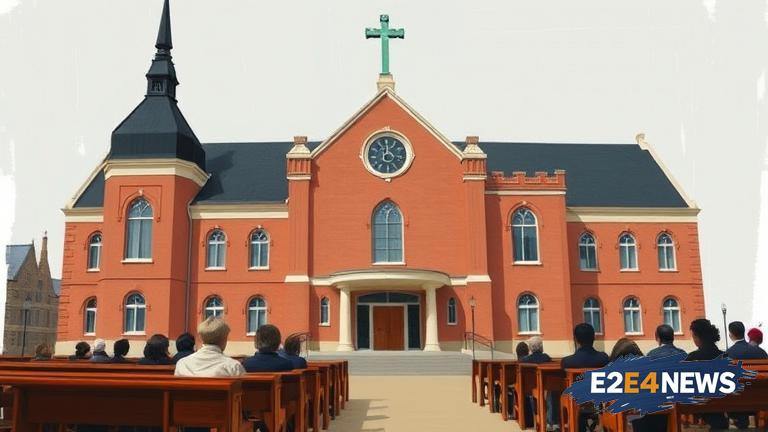A committee in Quebec has recently proposed that the government should cease providing financial support to private religious schools. This recommendation has ignited a heated discussion regarding the role of religion in education and the principles of secularism. The committee’s suggestion is based on the idea that public funding should prioritize secular and inclusive educational institutions. The proposal has been met with both support and opposition from various groups, with some arguing that it is essential to maintain the separation of church and state, while others believe that it infringes upon the rights of religious communities to provide education according to their beliefs. The issue is complex, involving considerations of religious freedom, educational equality, and the allocation of public resources. Proponents of the proposal argue that public funding of private religious schools can lead to segregation and inequality in education, as these schools may cater to specific religious groups, potentially at the expense of others. On the other hand, opponents claim that such a move could undermine the diversity of educational options available to parents and students. The Quebec government is now faced with the task of weighing these arguments and making a decision that balances the need for secular, inclusive education with the rights of religious communities. The committee’s recommendation is part of a broader conversation about the future of education in Quebec and how it can best serve the diverse needs of its population. This conversation includes discussions on curriculum development, teacher training, and the overall structure of the educational system. The goal is to create an educational environment that is both inclusive and respectful of different beliefs and backgrounds. However, achieving this goal is challenging, as it requires navigating the delicate balance between religious freedom and the secular nature of public education. The Quebec committee’s proposal has also drawn attention to the historical context of religious education in the province. Quebec has a unique history regarding the relationship between the state and religious institutions, which has evolved over time. The current debate reflects this history and the ongoing efforts to define the appropriate role of religion in public life, including education. As the Quebec government considers the committee’s recommendation, it must take into account the potential impact on all stakeholders, including students, parents, teachers, and the broader community. The decision will have implications not only for the educational system but also for the social fabric of Quebec. In conclusion, the proposal to stop funding private religious schools in Quebec is a significant issue that touches on fundamental questions about education, religion, and public policy. It requires careful consideration and a nuanced approach that respects the diversity of Quebec’s population while promoting the values of inclusivity and secularism. The outcome of this debate will be closely watched, as it may set a precedent for other regions grappling with similar issues. Ultimately, the goal is to ensure that the educational system in Quebec is fair, equitable, and provides high-quality education to all students, regardless of their religious background. This involves ongoing dialogue, consultation, and a commitment to finding solutions that benefit the entire community. The future of education in Quebec depends on the ability of its government and citizens to navigate these complex issues and work towards a system that is both secular and inclusive. By doing so, Quebec can set an example for other jurisdictions facing similar challenges, contributing to a broader discussion on the role of religion in public education. The committee’s proposal is a step in this direction, prompting a necessary conversation about the values and principles that should guide the educational system in Quebec. As this conversation unfolds, it is essential to keep in mind the long-term implications of any decision made, ensuring that it aligns with the principles of equality, inclusivity, and respect for diversity that are fundamental to a healthy and thriving society.
